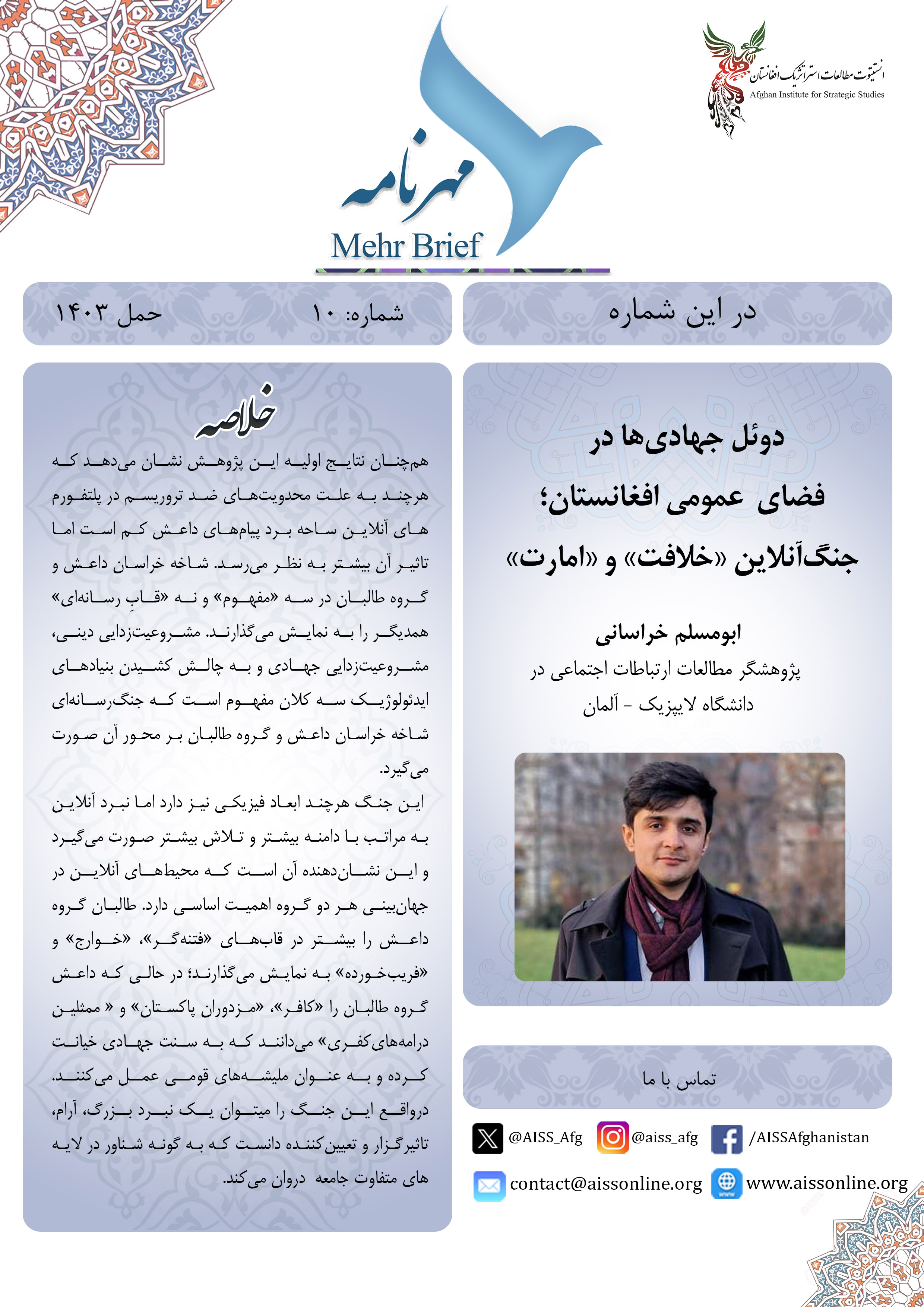The Duel of Jihadists in the Public Sphere of Afghanistan: The Online War Between the ISKP and the Taliban Groups

Abstract:
This thesis examines the online war between the Taliban Emirate and the ISKP Caliphate in the Afghan public sphere. It consists of two main parts. The first part uses the method of ethnography or web-writing to examine the Taliban's website "Al-Marsad" and the Khorasan branch of ISKP's publication Sadaye Khorasan - "Voice of Khorasan." This section is mainly based on the author's analytical observations. The second part uses the framing theory to analyze and examine the content published in November and December 2023 on the website Al-Marsad and the first and third issues of the magazine Voice of Khorasan. It aims to show how these two jihadist groups frame each other in their published content.
The results of this study show that the online war between the Taliban and the Khorasan branch of ISKP has occupied a part of the online public sphere in Afghanistan and, consequently, in the region and the world. Although the main battlefield of this war is located in Afghanistan and its neighboring countries, the outcome of this war potentially has a profound impact on the world. The media propaganda and online war of these groups on the Internet have facilitated the spread of religious extremism and Islamic fundamentalism and have strengthened/are strengthening neo-terrorism as a mutated form of the terrorist current in the world.
The preliminary results of this research also show that although the reach of ISKP messages is low due to anti-terrorism restrictions on online platforms, its impact seems to be more significant. The Khorasan branch of ISKP and the Taliban group present each other in three "concepts" and not "media frames." Religious delegitimization, jihadist delegitimization, and challenging ideological foundations are the three main concepts around which the media war between the Khorasan branch of ISKP and the Taliban group takes place.
Although this war also has physical dimensions, the online battle is carried out with a much larger scope and effort, which indicates that online environments are of fundamental importance in the worldview of both groups. The Taliban mainly portrays the ISKP group in the frames of Fitna-gar - "seditionist," Khawarij - "Kharijites," and "deceived," At the same time, ISKP considers the Taliban group as "infidels," "mercenaries of Pakistan," and "actors of infidel dramas" who have betrayed the jihadist tradition and act as ethnic militias. This war can be considered a significant, slow, influential, and decisive battle that seeps into different layers of society floatingly.
